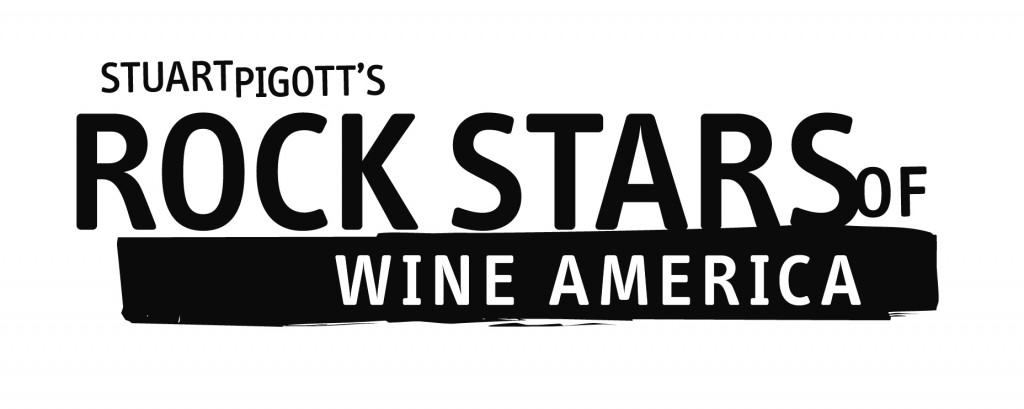The truth in my new e-book, ROCK STARS OF WINE AMERICA #3: FLXtra – This is a Love Story, did not get in there by accident. One of my most deepest held beliefs is that it’s the journalist’s responsibility is to tell it how it is, that is to achieve the highest possible degree of truth in her or his writings. If there’s as much truth about the new generation of FLX winemakers, the FLX and my life in my new e-book as I think there is, then that’s because I took that responsibility very seriously. A great deal of determination, far more than most people are familiar with, also played an important role.
Truth is a complex and many sided thing, even if some factual statements look painfully simple. A perfect example of this would be, “the Nazis, their collaborators and enablers murdered 6 million Jews in the Shoah / Holocaust.” That’s undeniably true, however, once you start reading and listening to the stories of survivors and perpetrators, study the documentary evidence, visit the Yad Vashem Holocaust museum in Jerusalem and so forth, then you realize that this statement only hints at the enormity of what happened. I think it’s also been rightly argued that this kind of bald statement also denies the victims their individual identities and the respect they deserve as complete human beings. Of course, in our daily lives we often have to make do with true statements about important stuff that are as grossly over-simplified as that one (although this is always preferable to the many crude lies and myriad slippery half-truths that are circulating). Frequently the reason for that is that there just isn’t the time to go into all the detail. But as an important old English saying goes, the devil is in the detail. That is what I took years working on, my first visit to the FLX having been in October 2004, the last one in March 2016.
Gonzo journalism is my way of getting at the many-sided truth in as much detail as possible, and its ideals are extreme immediacy and complete openness (both very difficult to achieve). A gonzo journalist like me is determined to break down all the barriers in this world to get at the truth, and is keenly aware how many of those barriers are actually illusions. Of course, the first place that those illusions exist are in the gonzo journalist’s own mind, so my research inevitably demands that I first work upon my own mind, only turing to the people around me. I always try to be compassionate and respectful towards those I’m researching and that I write about, but never to the point of accepting falsification or enabling it, much less making this mistake myself. Leaving things out of the story without telling the reader that, although the journalist knows they are actually vital elements of it is a particularly insidious form of falsification.
Another name I use for what I do is three-dimensional journalism. The first dimension of journalism is the facts, but which facts are the really important ones, that is, which combination of facts is the one that communicates the vital truth to the reader. This is a matter of context, the second dimension of journalism. As the German 19th century philosopher Friedrich Nietzsche wrote, “the context is the facts,” that is the two are utterly interlinked like Einstein’s concept of space-time, and directly shape each other. A journalist who is aware of these things and working accordingly is already doing a good job, but then comes what I consider the decisive third dimension of journalism, which is the question of how and why the writer came to the conclusion that these were the right combination of facts and the context(s) in which they should be seen. That’s what gonzo journalism is all about.
It was in this spirit that I wrote #3 FLXtra and the result has already upset a bunch of people. He or she who is in denial, who tries after shining a searchlight on something and recognizing its shape clearly in that light pretends that it can be ignored out of existence, will, of course, hate me for shining my flashlight in that direction. Even the statement of rather simple facts and the use of conventional journalistic description can become dangerous to people who anxiously struggle to keep everything in what they consider its proper place. Of course, their goal is power and control!
I know this might sound a bit abstract and philosophical, but I promise you that in my work this is all very concrete. I would always rather sacrifice good style and/or neat story construction to tell it how it is. And if you do that as a writer, then I think the people you write about come over to the readers as three dimensional individuals, rather than stock characters imprisoned in a stock narrative. The latter’s what much regular grade wine journalism is like, much other journalism too. To find out what this all really means I suggest that read my new e-book, or consult the works of the inventor of gonzo journalism Hunter S. Thompson. Of particular relevance to the current political situation is Fear and Loathing on the Campaign Trail 1972, his masterpiece. Hunter had to dodge some bullets because of what he wrote, and it seems I will too!

![21082011079 [1600x1200]](http://www.stuartpigott.de/wp-content/uploads/2016/05/21082011079-1600x1200.jpg)
